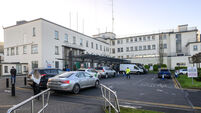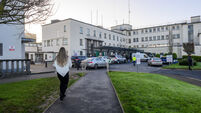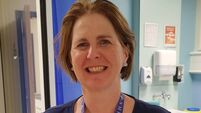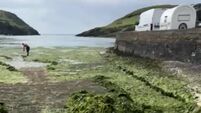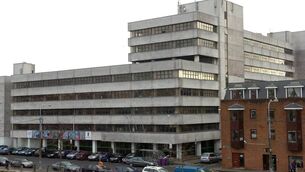Health minister's crisis visit to Limerick hospital finds nurses and doctors 'burnt out'

Minister Stephen Donnelly, TD Kieran O'Donnell, Senators Róisín Garvey and Maria Bynre, and HSE CEO Bernard Gloster at UHL. Picture: Brendan Gleeson
The health minister met with "burnt-out" nurses and doctors as part of a crisis visit to University Hospital Limerick (UHL), which is struggling with persistent overcrowding.
Stephen Donnelly said that the trolley crisis at the hospital will not be resolved unless consultants become more visible on the floor of the hospital’s overwhelmed emergency department and engage with management on the Public Only Consultant Contract (POCC).




